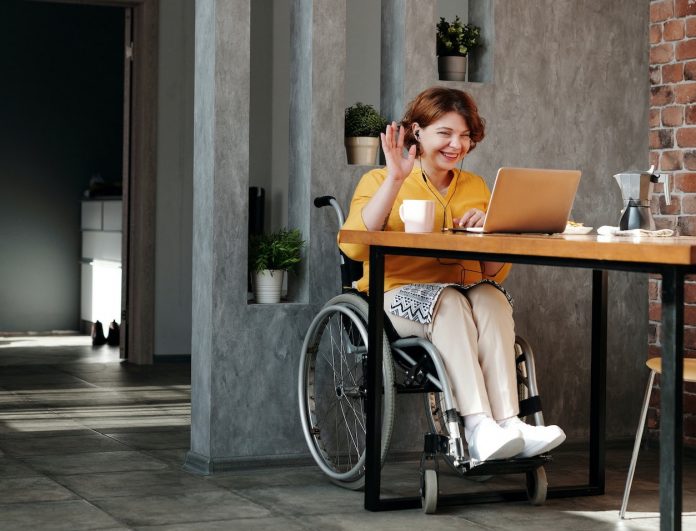The implementation of the project “Labour market Employment for young Adults with a Disability – LEAD”, co-funded by the EEA and Norway Grants Fund for Youth Employment, was a challenge for us with regard to what we wanted to change in the communities which we were addressing to.
We introduced in Romania, Lithuania and Portugal a good practice model regarding the Supported Employment, with the help of the team of experts from Status Employment (UK), in order to give a chance to a sustainable integration on the labour market and into society to our beneficiaries.
Now, five and a half years after, I am pleased to say that our efforts, as leading partner, and of the other two beneficiary partners, Valakupiai Rehabilitation Center (Lithuania) and Consultis – Consultoria Empresarial, Unipessoal Lda. (Portugal), paid off.
Our specialists approached in an innovative way the relations among: young adults with disabilities; their parents and tutors; representatives of companies; specialists and providers of Supported Employment services. They worked day after day respecting the methodology and principles of the Supported Employment process, based on the EUSE (European Union of Supported Employment) model.
We opened three Centers of Supported Employment Services, in Romania, Lithuania and Portugal, where young adults with disabilities looking for a job benefited from consultancy and support, at the highest standards in the field. Thus, the young adults enrolled in the project benefited from: vocational profiling, counselling to develop self-confidence; preparing for a job in line with their professional training and interests, developing their working skills, attitudes, behaviours and functional abilities to successfully achieve their employment goals. Moreover, our specialists monitored and supported them during the integration process. We gave time and attention to identify the skills and professional objectives of our beneficiaries in order to value their potential and help them to have an independent life.
Paradoxically, focusing on quality, we exceeded all assumed indicators. Thus, 640 young adults with disabilities aged 15 to 29 benefited by vocational profiling and personalised action plans, and they were involved in Supported Employment activities, within LEAD project. I am pleased to say that 148 of them were employed, 124 young adults with disabilities were enrolled in school programs and/or other qualification training programs, and 120 beneficiaries took part in volunteering activities.
Moreover, our team organised in Romania, Lithuania and Portugal 34 experience exchanges in order to encourage dialogue and to facilitate interactions between the young adults looking for a job and potential employers. At the same time, 889 potential employers benefited from consultancy, as well as training sessions dedicated to Supported Employment specialists. The employers learned how to communicate and how to work with young adults with disabilities, and how to make the most out of the opportunities, especially the fiscal ones, provided by the state to the companies which hire people from this vulnerable segment of society.
The in-work support (based on dialogue and mutual respect) provided by our colleagues was highly appreciated by the employers.Our team worked with the young adults’ new colleagues and the human resources specialists in order to help them communicate constructively with our beneficiaries, and in order to identify the problems which can appear during the integration process, and to solve them. It is a matter of pride for us that most of the entrepreneurs which have worked with us have not stopped at a single young adult with disabilities integrated into their teams. For example, in Romania, we have companies in portfolio that employed 7 young adults, some of them hired in 2018.
Another important direction in our work consisted in providing informational and emotional support to parents and family members of young adults with disabilities in order to help them understand their children’s needs and desires, and to help them motivate the young adults to get and to keep a job. In this respect, our teams organised training sessions dedicated to parents and tutors, and meetings with members of the support group for families of young adults with disabilities.
The integration of young adults with disabilities on the labour market is a complex process. For significant results, two things are needed: a win-win approach of the relationship between the employer and the potential employee and teamwork. Because of these reasons, we established in our countries National Networks of Supported Employment Services Providers. Members have benefited from the opportunity to collaborate, dialogue and act together to solve their problems, and to achieve their goals, including the recognition, by law, of the Supported Employment as a new service for people with disabilities.
We strongly believe that the potential of young adults with disabilities can be harnessed, with immediate benefits for them, for the employer and for society, by applying the Supported Employment model. In this respect, 5 guides will be provided free of charge, after project closure. Thus, companies interested in assuring an inclusive work environment can benefit from two guides, namely “Guide of Good Practice” and “Guidance and Training for Mentors”. In addition, our teams prepared two interesting guides (“Guide in Accessing Supported Employment Services” and “Guide for Supporting Entrepreneurship for Vulnerable Groups”) dedicated to young adults with disabilities, their parents and relatives. Also, the parents and the tutors of young adults with disabilities can benefited from a training package, too.
Young adults with disabilities can be a reservoir of skills and talent, who can bring added value to companies. The LEAD project was based on this premise. During implementation, we have proved hundreds of times that it was a correct premise, so we are still going to support and promote it, just as we are still going to support and promote the Supported Employment model.
We thank all beneficiaries and collaborators for their trust and we assure them that we will not stop here!
Nicolae Dobrescu,
Project Manager – LEAD
Executive Director of
Health Action Overseas Foundation


